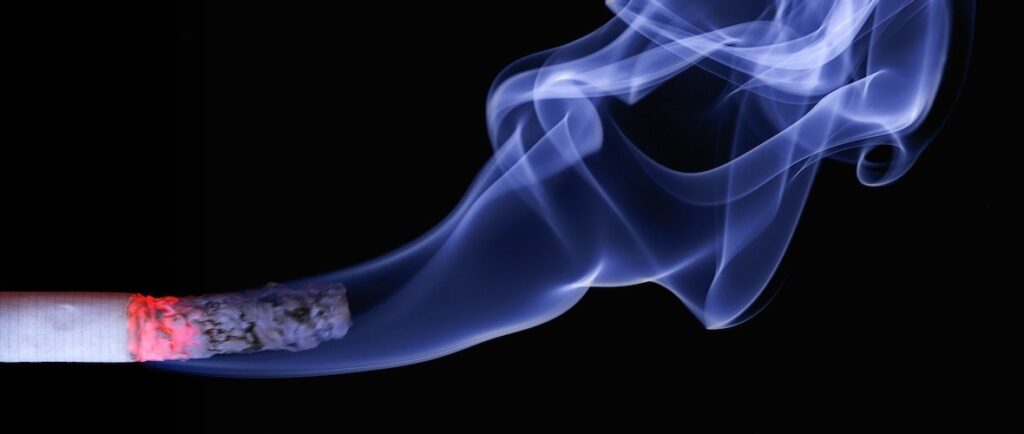Embrace a healthier tomorrow, today. Your lifestyle choices can be your strongest defense in the fight against pancreatic cancer. Let’s journey towards prevention together.
Pancreatic cancer is a disease where malignant cells form in the tissues of the pancreas, an organ aiding digestion and metabolism. The exact cause of pancreatic cancer is not fully understood, but it’s believed to be due to a combination of inherited and environmental factors. Certain factors may increase the risk of developing pancreatic cancer. These include smoking, obesity, heavy alcohol consumption, diabetes, working with pesticides and chemicals, and chronic inflammation of the pancreas.
Pancreatic cancer is a major health risk that is often detected at an advanced stage. While prevention alone cannot guarantee total immunity, incorporating lifestyle modifications provides a means of reducing risks. This blog looks at important changes that can be made to support a healthier future and potentially reduce the risk of pancreatic cancer.
These adjustments include various aspects of daily life and their collective impact on overall well-being. From dietary choices and physical activity to proactive healthcare measures, each adjustment contributes to reducing the potential risks linked to pancreatic cancer. In essence, we aim to empower readers with insights while in pursuit of a healthier tomorrow and a lowered risk of pancreatic cancer.
Maintain a Healthy Weight

Having an optimal weight is necessary for pancreatic cancer prevention. Studies have shown that obesity stands out as a risk factor, underscoring the need for sustained weight management. To reduce your risk of the onset of cancer, it’s important to include in your routine a combination of balanced nutrition and regular exercise, that enable weight reduction. By adopting a lifestyle that prioritizes healthy eating habits and physical activity, you create a foundation for overall well-being.
In addition to lowering the chance of pancreatic cancer, maintaining a healthy weight improves general health and strengthens your body’s defenses against disease. Adopt a holistic approach to wellbeing by including regular exercise and mindful eating into your daily routine to build a body that is resilient and resistant to cancer. It’s necessary to understand that simple, regular efforts to maintain a healthy weight and way of life can have long-term benefits for preventing cancer and improving general health.
Choose a Nutrient-Rich Diet

Adopting a dietary approach that is rich in a diverse range of essential nutrients stands tall as a proactive prevention strategy for pancreatic cancer. It is important to conscientiously opt for a broad spectrum of nutrient-packed foods, including a variety of fruits, vegetables, whole grains, and lean proteins. This strategic dietary selection serves to saturate the body with vital components and potent antioxidants, fortifying its defense mechanisms against potential cancerous threats.
Simultaneously, it is necessary to actively minimize the consumption of processed foods, red meats, and sugary beverages, all of which have been unequivocally identified as contributors to the heightened risks associated with the development of cancer, particularly pancreatic cancer.
Stay Hydrated

Ensuring proper hydration is another important approach that promotes overall health and potentially prevents cancer. It is important to consistently maintain a sufficient water intake throughout the day, consciously opting for water or herbal teas as alternatives to sugary beverages.
By prioritizing hydration, individuals contribute to supporting essential bodily functions, including digestion, nutrient absorption, and the efficient elimination of toxins. This holistic approach to hydration not only promotes physical well-being but also serves as a positive measure in the potential prevention of cancer. Embracing a routine of mindful and regular water consumption creates a conducive environment within the body, facilitating optimal functioning and bolstering the body’s natural defenses against various health challenges, including cancer risks.
Quit Smoking

Quitting smoking is an important step in reducing the risks associated with pancreatic cancer. While there are many methods that can be employed to facilitate one’s ability to quit smoking, it’s important to seek professional advice or participate in cessation programs, as these have been shown to increase the likelihood of successfully quitting smoking.
Prioritizing smoking cessation not only decreases the risk of pancreatic cancer but also contributes to the improvement of overall health and quality of life. Quitting fosters physical, mental, and emotional well-being. It’s a measure that has enduring benefits for cancer prevention and overall health enhancement.
Moreover, the journey to quit smoking is a personal one and can be challenging. It requires commitment, patience, and resilience. Support from family, friends, and healthcare professionals can provide the encouragement needed during this process. Utilizing resources such as nicotine replacement therapies, counseling, and support groups can also be beneficial.
Remember, every individual’s journey is unique, and what works for one person may not work for another. It’s important to find a method that suits you best and to not be discouraged by setbacks. So, take that step today for a healthier tomorrow. It’s never too late to quit.
Limit Alcohol Consumption

There is a strong correlation between the overconsumption of alcohol and an elevated risk of being diagnosed with pancreatic cancer. The importance of moderation cannot be overstated; adhering to the recommended guidelines for alcohol consumption can reduce this risk, while simultaneously promoting a healthier lifestyle.
Numerous studies have consistently underscored the harmful effects of heavy drinking on the health of the pancreas. These studies emphasize the critical importance of mindful consumption of alcohol. By consciously limiting the intake of alcohol, individuals can take an active role in protecting their health and reducing their susceptibility to this particularly aggressive form of cancer.
Following established guidelines for alcohol consumption serves a dual purpose. First, it minimizes the health risks associated with excessive drinking. Secondly, it fosters overall wellness. These guidelines are designed to help individuals strike a balance between enjoyment and health, and making informed choices based on these guidelines can have an impact on long-term health outcomes.
It’s necessary to recognize the influence of lifestyle factors on long-term health outcomes. Our daily choices, including our consumption of alcohol, play a substantial role in determining our future health. Embracing moderation in alcohol consumption is not just about reducing the immediate risks, but also about nurturing a healthier future.
Exercise Regularly

When it comes to warding off pancreatic cancer, regular physical activity stands out as a crucial element. It’s recommended to engage in moderate exercise for at least 150 minutes per week, supplemented by two strength training sessions. This regimen not only assists in maintaining a healthy weight but also mitigates the risk of various diseases, including pancreatic cancer.
Exercise’s role extends beyond weight management, which is known to decrease the likelihood of pancreatic cancer. It serves multiple functions in promoting overall health and well-being. Exercise contributes to cardiovascular health, lung capacity enhancement, and immune system strengthening. Furthermore, it aids in blood sugar regulation, thereby lowering the risk of diabetes, a recognized risk factor for pancreatic cancer.
The advantages of regular physical activity transcend the physical domain, positively impacting mental and emotional aspects of life. It assists in managing stress, improving mood, boosting self-esteem, and enhancing sleep quality. These mental health benefits are particularly important as they bolster your resilience and ability to go through life’s challenges. Remember, every step is valuable, and it’s never too late to begin. Your body and mind will appreciate your efforts.
Manage Chronic Conditions

Taking care of chronic conditions like diabetes is a key factor in keeping pancreatic cancer at bay. It’s a game of strategy, where you’ve got to stick to your meds, live healthily, and keep up with your doctor’s appointments.
Sticking to your medication schedule is like having a secret weapon. It helps you keep your health in check and avoid any nasty surprises that could make you more susceptible to pancreatic cancer. Living a healthy lifestyle is your shield. Eating right, staying active, and drinking plenty of water strengthen your body’s defenses against cancer.
Regular check-ups are your early warning system. They give you a heads-up about any health issues that might be creeping up on you and allow for quick action. Keeping an eye on your blood sugar levels, getting imaging tests done, and having a general health assessment during these visits is like having a top-notch healthcare strategy.
In short, being mindful and proactive in managing chronic conditions doesn’t just boost your overall health but is also a strong guard against the onset of pancreatic cancer.
Increase Fiber Intake

Going for a fiber-packed diet is like having a secret weapon against pancreatic cancer. It’s all about adding a mix of good stuff like whole grains, legumes, fruits, and veggies to your daily grub. The goal? To keep your digestive system happy and cut down the risks linked to pancreatic cancer.
Whole grains are like the superheroes of dietary fiber, doing wonders for your digestive health. Legumes, think beans and lentils, are the sidekicks that boost the fiber in your diet, making your gut a happy place. Adding a rainbow of fruits and veggies to your plate not only gives you a dose of essential vitamins and minerals but also piles on the fiber for a top-notch gut game.
Making sure you get enough fiber in your diet is key. It helps keep things moving smoothly and plays a role in guarding against pancreatic cancer. So, by going for a diet that’s rich in fiber, you’re not just boosting your overall health, but also strengthening your body’s defenses against cancer.
Consume Antioxidant-Rich Foods

The integration of antioxidant-rich foods into one’s daily dietary regimen can serve as a proactive measure in the battle against oxidative stress, with potential implications for reducing cancer risk. These foods, which include but are not limited to berries, nuts, and leafy greens, are replete with essential compounds that function as potent antioxidants, effectively neutralizing deleterious free radicals within the body.
Berries, encompassing varieties such as blueberries, strawberries, and raspberries, are noted for their high concentrations of antioxidants, including flavonoids and vitamin C. Nuts, with almonds and walnuts as prime examples, offer healthy fats and antioxidants that bolster overall health. Leafy greens, exemplified by spinach and kale, are recognized as rich sources of vitamins A, C, and K, in addition to a range of minerals and antioxidants.
The incorporation of these antioxidant-rich foods into daily meals serves to strengthen the body’s defense mechanisms. These antioxidants play a crucial role in preventing cellular damage instigated by oxidative stress, thereby potentially mitigating the risk of cancer development. The aggregate impact of these dietary choices extends beyond mere cancer prevention, promoting a state of comprehensive health and well-being.
Regular Health Check-ups

Engaging in routine health screenings emerges as an important agent in the timely detection and prevention of pancreatic cancer. These screenings serve as proactive measures to identify potential issues at an early stage, allowing for timely interventions and improved outcomes. Collaborating closely with healthcare providers becomes essential to tailoring screening protocols according to individual risk factors and medical history.
Pancreatic cancer often presents with subtle symptoms in its early stages, underscoring the importance of regular screenings, especially for individuals with heightened risk factors such as a family history of pancreatic cancer or certain genetic predispositions. By customizing screening approaches based on specific risk profiles, healthcare providers can optimize the chances of early cancer detection.
Establishing a collaborative relationship with healthcare professionals not only ensures personalized care but also facilitates the implementation of targeted screening strategies. Regular screenings can include imaging tests, blood tests, and other diagnostic measures designed to identify any anomalies in the pancreas.
In conclusion, the strength of pancreatic cancer prevention lies in adopting a comprehensive lifestyle change approach. Prioritizing weight management, balanced nutrition, regular physical activity, and proactive healthcare significantly reduces cancer risks, paving the way for a healthier future. It’s essential to recognize that the consistency of small lifestyle changes today can yield substantial benefits in the days to come. Embracing these practices empowers individuals to take control of their well-being, fostering a proactive stance against pancreatic cancer and contributing to an overall healthier and more resilient life.
This blog provides general advice on lifestyle changes for pancreatic cancer prevention. It’s not a substitute for professional medical advice, diagnosis, or treatment. Always seek the advice of your healthcare provider.







